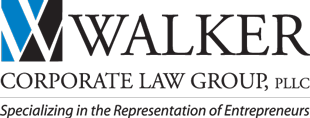It’s Time to Destroy the Billable Hour
by Scott Edward Walker on March 10th, 2010
The Market Problem
I received three calls over the past few days from entrepreneurs looking for a new law firm because of the excessive fees of their current law firm. Two of the three entrepreneurs advised me that they were reluctant to even call their lawyer with a question because of the fees. I thought to myself: I get it! 15 minutes = $150 to $200 for partners at the big firms.
In fact, it can be worse than that. Often entrepreneurs and startups have their legal work assigned to young associates with little or no experience. They then call the young associate with a question, and he or she doesn’t know the answer and thus has to speak to the partner in charge. Often, the partner and associate will call the client back together; and here’s what the billing statement looks like for one question:
Attorney Date Hours Description of Services Rate Fee
| Alan Associate | 3/10/10 | .60 | Telephone call with Client; conference with Peter Partner; telephone conference call with Client and Peter Partner. | $440/hr | $264 |
| Peter Partner | 3/10/10 | .40 | Conference with Alan Associate; telephone conference call with Client and Alan Associate. | $720/hr | $288 |
How do I know this? Been there, done that. Indeed, I worked for nearly eight years at two major law firms in New York City. This is how phone calls from clients often play-out. The same inefficiency exists for the drafting of agreements: a junior associate spends a lot of time preparing the initial draft (pulling together different forms, learning on the job); a senior associate and/or junior partner reviews and revises the draft; the junior associate meets with the senior associate and/or junior partner to discuss the revisions; and then the junior associate finalizes the agreement and sends it out.
The bottom line is that the traditional law firm model – i.e., the billable hour – rewards inefficiency, overstaffing and padding.
The Solution
So what’s the solution to all this?
One solution is the advice given by Bram Cohen, a smart entrepreneur, in the comments section of my post on VentureHacks entitled Top Ten Reasons Why Entrepreneurs Hate Lawyers:
“Associates doing work is a real problem. I’ve found that insisting that all work be done by partners results in better work for less money in the end, even though the nominal hourly rate is much higher, because an associate will bill for several hours researching a subject which the partner already knows off the top of their head.”
That’s great advice – and that’s why my firm has no associates and each attorney on my team has 10-25 years of experience. But even that advice doesn’t completely solve the inherent problem of the billable hour model because inefficiency is still rewarded: the longer the project drags on, the more the law firm is paid.
There’s only one solution: fixed fees – i.e., the law firm and the client agree beforehand how much the project will cost. This is the dagger to the billable hour model.
No more incentive for the law firm to be inefficient. No more overstaffing. No more associates banging the file to meet their annual minimum billing requirements or bonus targets. And the best part from the client’s perspective: no more surprises at the end of the month when the invoice arrives.
Conclusion
It’s time to destroy the billable hour. If entrepreneurs cannot call their lawyer with a question, there’s obviously a problem in the marketplace. The solution is easy: a fixed fee (which includes unlimited phone calls and emails). That’s what we’re doing – and that’s why entrepreneurs love us.
Tags: associate, billable hour, entrepreneurs, fixed fee, fixed fees, law firm, Lawyers, partner

Amen!
LOL
Like most things, if you want a good result, one size doesn't fit all. For transactional work, you're re-running a known process to create a solution for the client. Known quantities = fixed fee, adjusted if necessary for + or – variations. But if you're creating new art, then it's hard to define what's involved or how long it's likely to take. Fortunately, most startup law falls into the former category.
What's good about this kind of discussion is that someone's actually thinking about what entrepreneurs need, rather than pushing on them the kind of law that has been traditionally practiced.
Good input – thanks Mark
Thanks Scott for another interesting subject… There's another inefficiency generated from the billable hours concept: When lawyers scare you with billable hours from the get-go you feel reluctant to call and ask for advice, which in turn may cause you to take the DIY way, making mistakes that could be costly to fix later.
On the other side of the table, fixed rates may in effect reduce the money per transaction for the lawyer, but it probably makes it up in elevated volume of transactions, or put another way, a lot of new and recurring clients.
This is why entrepreneurs should always find an entrepreneur-minded lawyer team to work with since it makes all the difference in the world!
DISCLAIMER: I am a happy and satisfied client of Scott's team.
Thanks Pablo. You're a smart entrepreneur – and it is indeed a pleasure working with you.